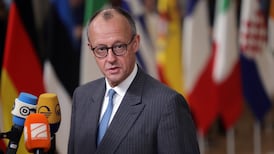The European Commission's announcement yesterday that it is to investigate three countries, including Ireland, for offering specific tax arrangements to companies is likely to re-focus international attention on Ireland's corporate tax regime.
Six months after Ireland exited the bailout, the country returned to the business pages of the international press yesterday, as the commission launched an official investigation into the tax rulings the Irish authorities offer Apple.
Tax rulings are comfort letters by the tax authorities addressed to individual companies outlining transfer pricing arrangements, which in turn determine how corporate tax rates are calculated.
The decision by the EC to launch the probe at the end of the current commissioner’s five-year mandate raises interesting questions about the scale and scope of the its authority over member states on tax matters.
While the EC has a directorate general dedicated to tax, issues of income and corporate tax remain the preserve of member states. Any decision by the EU on tax requires unanimity from member states. The recent divisions between these states over the Financial Transactions Tax (FTT), which resulted in just 11 states proceeding with the measure under the so-called “enhanced cooperation” procedure, shows how difficult it is to get consensus on tax.
Announcing the investigation yesterday in Brussels, EU Competition Commissioner Joaquin Almunia strongly defended his division's right to examine the tax arrangements of member states.
“Of course tax issues are an EU issue,” he said, listing a number of precedents to the latest anti-trust case, some of which resulted in countries having to recoup the money from companies. It was the EU’s job to make sure that citizens are offered a fair tax system, he said.
The commission stressed that the anti-trust investigation had no bearing on member states’ corporate tax rates or regimes.
Further, EU competition rules actually allow countries to offer special tax incentives or rulings in certain economic cases. It is only if tax rulings are deemed to provide selective advantages to a specific company or group of companies that they may be in breach of EU state aid rules.
The ambiguities have raised suspicions in some quarters that the EC – essentially the civil service of the EU – is involving itself in matters that fall outside its remit.
Aggressive tax planning has become a hot political issue since allegations of profit-shifting by US multinationals operating in Europe surfaced more than a year ago.
The fact that the recent trend in many EU countries, from Lithuania to Britain, has been to gradually lower corporate tax rates, has also lessened the pressure on Ireland to tackle its 12.5 per cent rate. The focus is now turning to specific tax incentives entered into by member states with companies that indirectly allows multinationals to lower their tax bills.
Ireland has vowed to “vigorously defend” its tax regime in the face of the investigation. “Ireland is confident that there is no State aid rule breach in this case and we will defend all aspects vigorously,” a Department of Finance spokesman said yesterday.
It is also prepared to fight the case in the European Court of Justice should the commission rule against Ireland.
With the investigation potentially causing serious reputational damage to Ireland, Dublin will be hoping that it will be concluded within the next six to 12 months.
Many believe this is wishful thinking, given that EU anti-trust cases can run for years. The appointment of a new commissioner later this year may also delay things. Mr Almunia yesterday rejected the suggestion that the investigation could lose momentum when he goes in October.
“The day after I leave, my successor will continue with investigations that are on-going. The services of the commission will not stop . . . because their boss will change.”
While Ireland considers the impact on its reputation as a location for foreign direct investment, yesterday's announcement may also feed into the increasingly divisive debate about the appointment of the next European Commission president.
Brussels' decision to refer Luxembourg to the European Court of Justice for failing to fully comply with the enquiry is likely to tarnish further the reputation of Commission president hopeful Jean-Claude Juncker, who was prime minister of Luxembourg when many of its tax-rulings were negotiated.
Similarly, euro group president Jeroen Dijsselbloem, the finance minister of the Netherlands, will have to defend his own country's practices, as the Commission investigates the Netherlands' tax arrangements with Starbucks.
With finance ministers, including Michael Noonan, scheduled to meet in Luxembourg next week, the thorny issue of taxation is likely to be part of the agenda.













